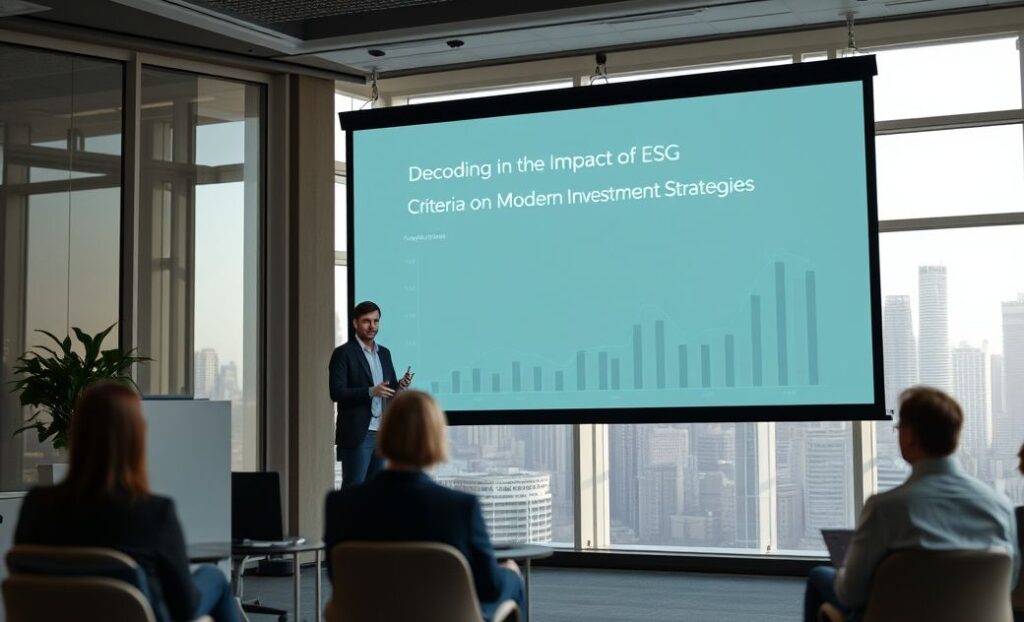In recent years, Environmental, Social, and Governance (ESG) criteria have emerged as pivotal factors in shaping modern investment strategies. Investors who once primarily focused on financial returns are now increasingly scrutinizing the ethical and sustainable practices of companies. This shift is not merely a trend but a reflection of changing societal values and regulatory landscapes.
Understanding ESG Criteria
ESG criteria encompass three critical dimensions: Environmental, Social, and Governance. These elements guide investors in evaluating the ethical impact and sustainability of their investments.
Environmental Factors
Environmental considerations pertain to a company’s ecological footprint and sustainability practices. This includes how businesses manage waste, use resources, and contribute to climate change mitigation. Companies committed to reducing carbon emissions and promoting renewable energy are often favored by ESG-conscious investors.
Social Factors
Social criteria analyze how companies manage relationships with employees, suppliers, customers, and communities. Key areas include labor practices, human rights adherence, and community engagement. Investors look for companies that foster diversity, equity, and inclusion within their workforce and beyond.
Governance Factors
Governance involves the way a company is run at the highest levels, focusing on leadership, executive pay, audits, and shareholder rights. Investors are drawn to companies with transparent and ethical business practices, as well as those promoting accountability and independent board oversight.
Impact on Modern Investment Strategies
ESG criteria are reshaping the finance landscape in ways that significantly impact investment strategies. Companies with high ESG scores are increasingly seen as safer investment bets with long-term sustainability.
Risk Mitigation
Investing in companies that prioritize ESG criteria can mitigate risks associated with environmental regulations, social upheaval, and governance scandals. By investing in ethically sound organizations, investors protect themselves from potential reputational damage and financial losses.
Enhanced Performance
Numerous studies indicate that companies scoring highly on ESG factors often outperform their peers. Sustainable practices tend to correlate with efficiency improvements and cost reductions. Additionally, socially responsible companies often enjoy higher employee satisfaction and customer loyalty, driving better overall performance.
Attracting a New Generation of Investors
ESG investing is gaining traction among Millennials and Gen Z, who prioritize sustainability and social responsibility. This demographic shift is prompting asset managers to integrate ESG factors into their investment products to attract and retain younger investors.
Challenges and Considerations
Despite the rising popularity of ESG investing, challenges remain that investors need to navigate carefully.
Lack of Standardization
Diverse reporting standards and lack of universally accepted ESG criteria can lead to inconsistencies. Investors may struggle to compare companies effectively due to differing disclosure practices. Efforts are underway globally to develop unified reporting frameworks, but these are still evolving.
Greenwashing Concerns
As demand for ethical investments surges, some companies may engage in “greenwashing,” where they falsely portray their business practices as environmentally friendly. Investors must conduct thorough due diligence to distinguish genuine ESG efforts from marketing ploys.
The Future of ESG Investing
As ESG considerations continue to redefine the financial industry, they are expected to grow in importance. Regulatory frameworks are tightening, with expectations for mandatory disclosures on the rise. Investors and companies that embrace ESG are likely to remain at the forefront, enjoying both financial success and a positive societal impact.
In conclusion, ESG criteria are no longer an optional consideration but a critical component in the toolkit of modern investors aiming for sustainable and ethical portfolios. As awareness and demand grow, the financial world’s landscape will continue to evolve, driven by responsible investment practices.
